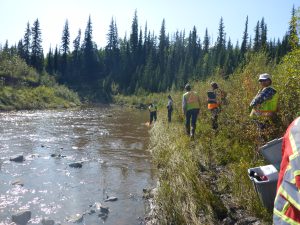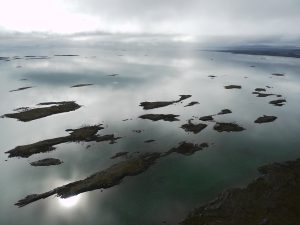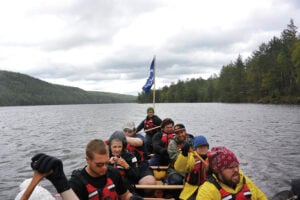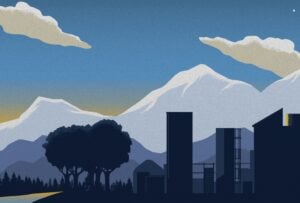
Environment
Healthy rivers: Communities use DNA tool to keep tabs on freshwater quality
Many of Canada’s 25 watersheds are under threat from pollution, habitat degradation, water overuse and invasive species
- 996 words
- 4 minutes
This article is over 5 years old and may contain outdated information.
Science & Tech

In 2006, David Lavallee started a journey to find the source of an imaginary drop of water. Three years later, Canadians were rewarded with the award-winning documentary White Water Black Gold on what that drop had to endure from beginning to end.
As the film will be showing during Canada Water Week from March 17 to 23, Canadian Geographic asked Lavallee to share his thoughts on the importance of this resource.
Q: How did this journey begin?
A: After a number of years hiking and climbing, I started to notice the glaciers were rapidly losing volume. After seeing An Inconvenient Truth, I became immersed in the topic.
Q: Did you have any experience in filmmaking?
A: No, but after I saw An Inconvenient Truth, I clued into the power of film. Documentary is a different kind of filmmaking and having access to a story is almost as important as technical skill.
Q: Environmentally, what was the biggest challenge in making White Water Black Gold?
A: Trying to get around in a whiteout in the Columbia Icefields. I fell into a 30-foot crevasse. Intuition told me that landscape normally shouldn’t have these large cracks in high altitude places, but because of the rapid changes in the glacier, regular rules of safe mountain travel didn’t apply anymore.
Q: What elements of water will you focus on in your next film?
A: Water has never been used as much as it is now. The new film expands the conversation on water to include the economy and climate, and what will happen to these in the future. Right now, there’s record sea ice loss and more droughts, floods and typhoons. Instead of having conversations on how to stop these, we are talking more about adapting to them.
Q: What small changes can people make in their lives?
A: Voting with your wallet, asking questions about products and consuming less are all a starting point, but being politically active is the most important thing.
Are you passionate about Canadian geography?
You can support Canadian Geographic in 3 ways:

Environment
Many of Canada’s 25 watersheds are under threat from pollution, habitat degradation, water overuse and invasive species

Environment
How much do you know about Canada’s water — where it comes from and how it’s used?

People & Culture
How a journey through the Great Lakes helped reshape my relationship with water after the loss of my father

Environment
Carbon capture is big business, but its challenges fly in the face of the need to lower emissions. Can we square the circle on this technological Wild West?